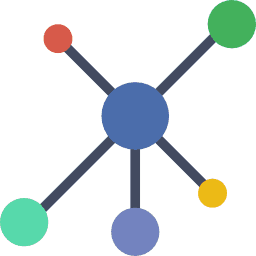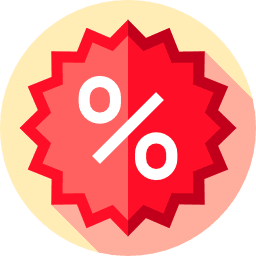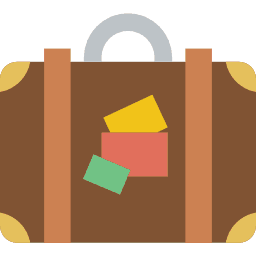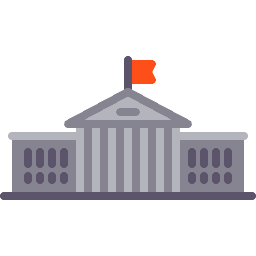Choosing a bank can be tough. You work hard for your money, and you’re not going to leave it with just anyone, are you?
Here’s the deal:
Choosing a bank doesn’t have to be complicated, but you do need to put in a bit of effort to ensure you’re getting the service you deserve.
There’s no reason you should have to continue putting up with a bank that provides horrible customer service, hidden fees, and little growth on your investments.
And lucky for you, this guide will expertly walk you through everything you need to know about how to discern a good deal from a bad egg.
1. Location Is Key
You may be thinking, why can’t I just use the bank down the street? It’s close, and isn’t that what’s most important?
But just like your real estate agent will tell you, location is everything! Using the local community bank down the road may seem like a good idea initially, but it can become extremely annoying when you want to withdraw urgently needed funds and you’re nowhere close to home.

If you sign up with a larger national bank, you can pretty much rest assured that you’ll always be close to a branch no matter what you’re doing, whether that be working, traveling, or moving to another city.
In contrast, opting for a community-based bank can really limit your ability to access your money when you’re not close to home. Maybe you’re up at the cottage and you realize you need to make a withdrawal to pay for all those extra marshmallows.
Unless you want to disappoint your s’more-hungry guests, you’ll be forced to use another bank’s ATM and get hit with a user fee.
2. Watch Out for Hidden Fees
But banks aren’t out to deceive me, are they? Why would I need to do all this extra research when a nice financial advisor is willing to tell me everything I need to know?
Here’s the deal:
That nice financial advisor may offer you a lot of useful advice, but they’re likely not going to be upfront about everything. Banks exist to make money, and if they can get away with charging hidden fees then they will.
Hidden in the fine print, banks can sneakily incorporate fees into many aspects of your banking experience.
And the problem is, most consumers have no idea they’re paying for them until they see them pop up on their monthly statement.
$1 here and $3 there might not seem like much, but over time they can really take a chunk out of your savings.
Want to know the bottom line?
To route out hidden fees you need to be a bit of a detective. So I would suggest you investigate your bank’s policy on fees for the following:
Using an ATM: Are you always-withdrawing cash for your latest weekend excursion? If your bank charges you for every ATM use, you’ll be spending more on fees than on your weekend cocktails.

Bouncing a Check: Although not a good habit to get into, bouncing a check can happen to the best of us. What is your bank’s stance on bounced checks? Will they charge you a pretty penny for writing a bad check?
Savings and Checking Accounts: Do you have to pay a monthly fee just to have an account? Do you need to maintain a minimum balance or else incur a fee?
Overdraft Protection: Overdraft protection allows you to write a check or pay with debit even when you’re in the red.
The kicker is that your bank will charge you every time this happens, with overdraft fees being as high as $35. So that $2 chocolate bar you just purchased actually cost you $37!
Late Payment on Loans: Maybe you’re tight one month and make your mortgage payment a bit late. If you’re living paycheck-to-paycheck, fees on late payments for loan products can become a literal nightmare.
3. Choose Based on Your Social-Skills
You might be thinking, how does my degree of extroversion in any way relate to what institution I choose to bank with?
Let me break it down for you.
If you consider yourself a social butterfly, then you’ll probably be very unhappy with an online bank that minimizes customer contact.
At the same time, if you’re a social recluse and hate all this unnecessary socialization, then the small town financial planner who wants to know all about your family is likely to drive you up the wall.
Do you see where I’m going here?
If you’re a bit more extroverted, then you’ll probably enjoy banking with a bricks and mortar establishment that has real people who can help you with your money matters.

National banks, credit unions, and community banks can be a great option for you because there will always be a ‘real’ person you can talk with if you should need to.
Conversely, if you’re a bit more introverted, then online banking could be a perfect fit for you.
Almost everything can be done from home on your computer. At the same time, a national bank could also meet your needs because they usually always have an online banking system.
4. Think Interest Rate
Are you thinking, what’s the point of looking for a competitive interest rate? The economy is so horrible right now that it seems no one is making any money!
I would suggest not putting all banks into the same category! Yes, the economy is pretty horrendous right now, but if you want to maximize your money’s ability to grow, then it pays off to find competitive interest rates.
The entire point of finding the best bank is to maximize your nest egg with hopefully little effort on your end (you already work hard enough for your money!).
Although many consumers opt for keeping their money in a big national bank, these guys are the least likely to have competitive interest rates.

Why would they need to? Most of the time, they’re not exactly scrounging for new customers because they’re so well known.
In contrast, one could find a more competitive and higher interest rate with an online bank.
These types of institutions may have fewer products or services to offer, but they also can have some pretty competitive interest rates to lure new customers on board.
The bottom line is:
You may have to sacrifice some services and products for a better interest rate. Putting up with additional restrictions on your account may be worth it if you can make an extra hundred dollars a year.
Conversely, maybe that super competitive interest rate just isn’t worth the lacklustre customer service.
You have to decide what your priorities are!
5. Cover All Bases – Especially Travelling
Do you love to travel? Maybe you travel a lot for business or you leave for warmer temperatures every winter. What do your travelling habits have to do with your choice of a financial institution?
The thing is:
If you never leave your small town then you’ll probably be perfectly content with a small community bank.
But it can be extremely frustrating when you’re racking up constant fees every time you have to use another bank to withdraw money when you’re out of town or out of the country.

Instead, it may be a better idea to go with a large national or international bank that will allow you to have easy access to your money.
Opting for a larger national bank means you’ll have access to fee-free ATMs across the country when you do decide to go on that next road trip. Plus, they’re more likely to have agreements that will allow you to withdraw from another bank’s ATM without incurring a charge when you’re backpacking across Europe
6. Consider Your Time Schedule
Maybe your objection is you simply don’t have time for all this excessive research! You’re taking care of your kids, and working full-time hours with a rotating shift to boot.
You hardly have time to shower, much less think about the best bank for your money.
But let me be clear:
If you’re an extremely busy employee/parent/partner/volunteer/humanitarian then you will definitely need to make an extra effort to ensure your future bank can adapt to your crazy schedule!

If you work long hours then you’ll probably become frustrated with a bank that’s only open 8am-4pm, Monday through Saturday.
If you’re constantly busy with work and the demands of life, then choosing the local community bank is probably not the best idea.
They’re unlikely to have adequate online resources if you want to access your accounts from home (or wherever you may be), and they’ll have a pretty limited operating window.
At the same time, if you’re a busy person and financially uneducated, then you could find yourself pulling out your hair when you can’t seem to talk to someone other than an automated voice system outside of regular bank hours.
Larger banks are more likely to offer accessible in-person service if you’re looking for a bit of money management advice.
The best bet is to ask friends and family what their experiences are with their banks. How accessible is their customer service? Is their bank open on weekends or evenings? Is it possible to talk to a real person outside of normal bank operating hours?
7. Think Big
Aren’t all banks basically the same? As long as they provide checking and savings accounts, then what more could I possibly need?
But consider this:
Even though you may only be using a savings and checking account right now, you’ll likely want to utilize a larger number of financial products in the future when you start thinking about increasing your savings.

Larger banks are more likely to have a larger array of financial products on offer. The following are a few you might want to keep in mind for the present and the future:
Car Loans: What kind of interest rate does your bank charge on car loans?
Home Mortgage Loans: What kind of mortgages does your bank offer? What are the interest rates associated with a fixed or variable term mortgage?
Credit Cards: What kinds of credit cards does your bank offer? Is there an annual fee associated with them? What are the interest rates like?
Insurance: Is there an opportunity to combine home and auto insurance for better savings? What kind of insurance does your bank offer and is it competitively priced compared to what an independent insurance broker would offer?
Investments: There are a number of potential investment products you can use to reach your savings goals. Mutual funds, RSPs, RESPs, TFSAs, and GICs etc. are all options depending on your current situation. Most importantly, does your bank provide sufficient support to help you make the best decision?
So there you have it! Using these tips will help you choose the best bank to meet your needs.
Did this article help you in your quest to find a good bank? If it did, feel free to share!




My wife and I moved into a new area recently, and we were curious about how you would choose a bank to go to. I never considered that you should consider your amount of social skills, and then choose someone that is going to make you comfortable in that area. Since I have never been a big fan of talking with people for long periods of time, it would be nice to choose someone that gets to the point quickly.